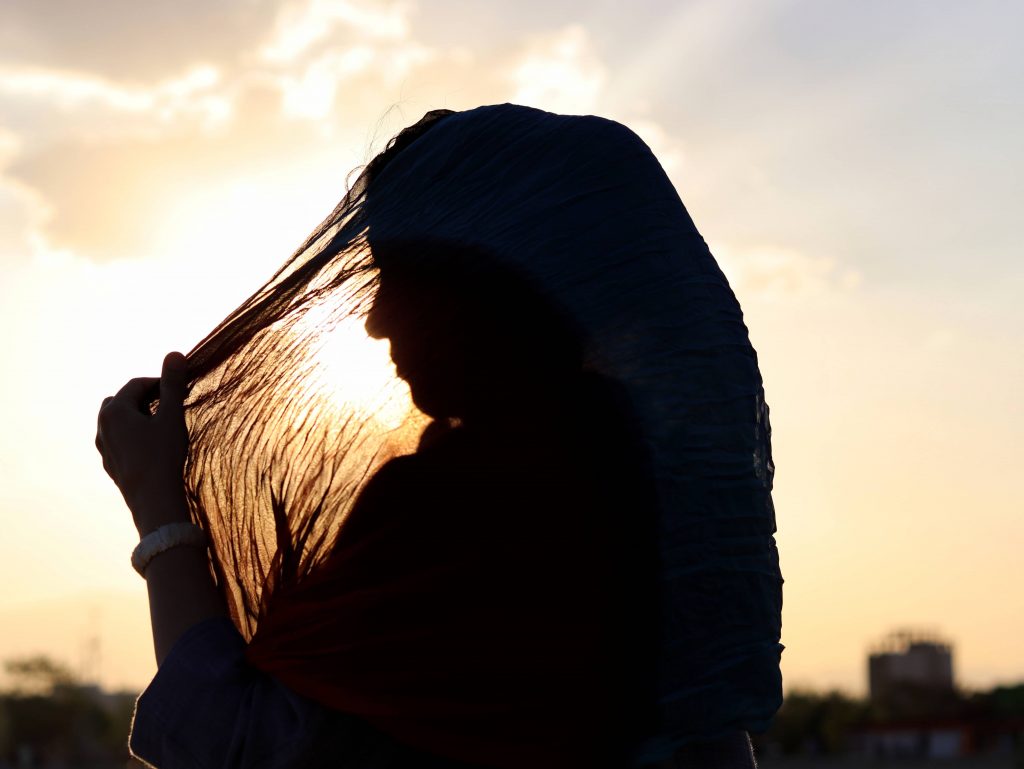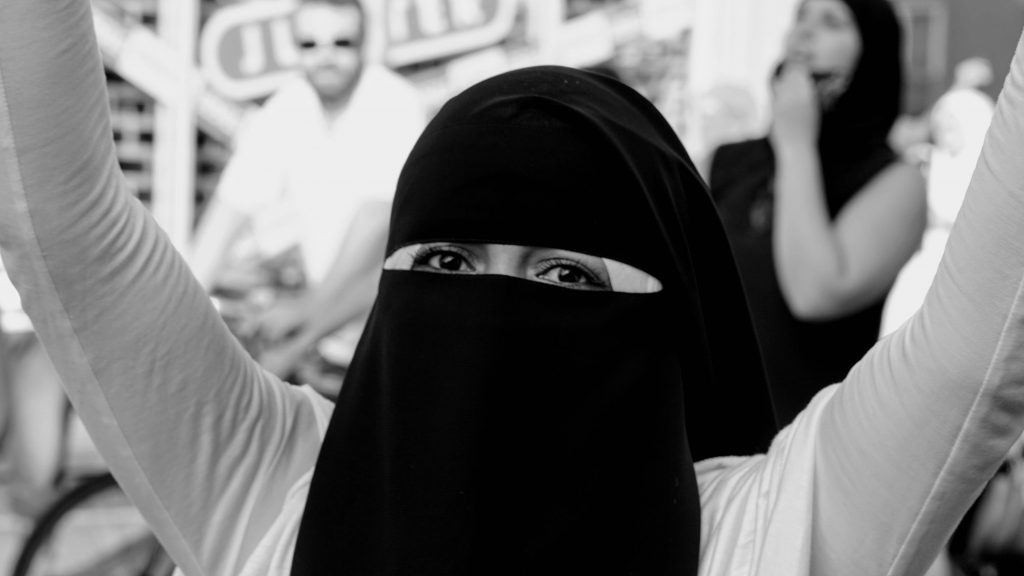
Islamic law deems marriage to be a contractual union between a man and a woman. It has supreme cultural and social significance as it is a “Mithaqun Ghaleez” – a challenging commitment. It contributes to the survival of the human race, unites families, creates several rights and obligations, etc. Even though a divorce is heavily disliked in this religion, it is not “haram” (forbidden).
Thus, people are theoretically allowed to divorce their spouses. One such type of divorce is the “Talaq-e-Mughallazah” method or the “Talaq-e-Bid’at” method which is most famously known as “triple talaq”. In layman’s terms, it is an instant divorce where the husband is required to utter the word “talaq” to his wife three times in a row. This can be communicated in verbal, written, or electronic form such as a text message, an e-mail, etc. This is final and irrevocable. However, there is an exception to this rule which is as follows:
“The Hanafi school of thought of Islam concurs that a husband who divorces his wife thrice cannot remarry her unless she marries another person through a valid nikah, and this second person consummates the marriage, in accordance with verse 230 of Surat al-Baqarah: So if he divorces her, she shall not be lawful to him afterward, until she marries another husband …. (2:230).“
This is known as “nikah-halala” or “tahleel marriage”. The word “nikah” refers to marriage and “halala” refers to something that is “halal” or permissible. Thus, the phrase denotes a valid marriage. However, it is gravely misunderstood, misused, and manipulated in a manner of moral turpitude by certain persons in the community which makes it a controversial topic of discussion.
Initial Intention vs. The Ugly Reality
It is said that nikah-halala was originally created by the Prophet himself to ensure that the sanctity of a marriage is not violated. It aimed to prevent a man from harassing his wife by repeatedly marrying and divorcing her. Moreover, it aspired to empower women through the freedom of choice as women had the liberty of marrying someone else if they were divorced by their first husband. Later on, if their second husband died or divorced them, they could re-marry their first spouse if they desired to do so. Regrettably, the disparity between this intention and the actual application and consequence of the same is poles apart.
In reality, women are prostituted and exploited through this practice which causes them considerable mental and physical trauma. They are essentially forced to marry a different man they do not have romantic feelings for and consummate the same without their free will and consent. This vulnerability is utilized by unprincipled people who predate these women and offer “nikah-halala services” in return for monetary compensation. This has been proven by news agencies such as India Today and the BBC who conducted undercover investigations and reported on the same. It was found that these services had additional troublesome consequences in the form of sexual abuse, extortion, threat to not divorce, etc.
Why is Nikah Halala followed till now?

It is apparent that nikah-halala when misused is truly an abhorrent and misogynistic practice that fundamentally destroys a woman’s dignity and self-respect. It is unquestionably against the entire purpose of Islam and contributes to the degradation of women. However, there remain some countries where small parts of the Muslim community still follow this practice. It is banned in the Shia sect of Islam but is practiced by some people who follow the Hanafi school of the Sunni sect.
One ponders on the reasons for the same if it is such a horrifying act. An explanation could be that on many occasions, a husband pronounces triple talaq in extreme anger or irritation and then immediately regrets his actions as he would still like to remain married. If his wife here feels the same way, she might be determined to “save” her marriage in any manner whatsoever; regardless of her future suffering. The wife might also have children with her husband which makes her eager to continue living with him. Another reason is the prevention of social ostracization and its mental impact.
As previously elucidated, marriage plays an imperative role in the religion of Islam. However, in some exceptionally conservative and patriarchal cultures, this role is made puissant to the point of becoming extremely dangerous. Women are almost conditioned by society to believe that their life has no meaning if they are not married. They are so mercilessly shunned and humiliated if they announce a divorce that they start accepting the notion as a certainty.
“Muslim societies generally exhibit a derogatory attitude of contempt and scorn towards divorced women. They are considered to have brought disgrace to the family. The immense negative social connotation exacerbates an already highly emotive and emotionally turbulent experience for her.”
Petitions filed against Nikah Halala and the Impact they had
Countless petitions had been filed by advocates, NGOs, etc. to ban the practices of triple talaq, polygamy, and nikah-halala. The Supreme Court decided to club these petitions together under one landmark case. Finally, on the historic day of 22nd August 2017, instant triple talaq was declared unconstitutional by a 3:2 judge majority. The case interestingly only focused on triple talaq and decided that polygamy and nikah-halala will be treated as separate issues later on. It was said that triple talaq violated the fundamental right to equality under Article 14 of the constitution of India. Thus, they made any divorce under triple talaq null and void.
The impact of this judgment was “The Muslim Women (Protection of Rights on Marriage) Bill, 2017” which eventually became the “Muslim Women (Protection of Rights on Marriage) Act, 2019” which was passed on 30th July 2019. It made triple talaq illegal and punished the husband who performed the act with imprisonment of up to 3 years. It must be highlighted here that the creation of the act itself is an immense legal quandary in a theoretical sense. This is because calling an action “constitutionally invalid” and calling it a “criminal offense” do not have the same meaning. Thus, the act is dangerously close to being in contradiction with the original spirit of the apex court judgment.
However, practically speaking, this act has fortunately resulted in the reduction of triple talaq cases by approximately 82% according to government data. In the year 2018, another petition was filed regarding a section of Muslim personal law that legally validated polygamy and nikah-halala. It requested the apex court to declare these practices unconstitutional. The petition also cited the significance of a ‘Uniform Civil Code’ and how it must be implemented by the Government of India. It should be noted that this code is also a topic of argument and discussion as it might put an end to discriminatory personal laws but might also affect the right to freedom of religion.
The Supreme Court considered the plea and referred the matter to a constitution bench that had been previously been asked to hear a group of similar petitions. Advocate Ashwini Upadhyay requested that this matter be heard as soon as it is possible as this is a matter of great public urgency and it considerably affects Muslim women. In 2020, the All India Muslim Personal Law Board (AIMPLB) filed an Intervention Application (IA) in the Supreme Court which directly opposed the 2018 petition. It said that the 2018 petition is unnecessary as the judicial courts have already passed several judgments regarding polygamy and other practices. Moreover, they claim that other organizations that help Muslim women already exist.
Personal Recommendations
Some possible solutions to remedy the issues caused by nikah-halala are as follows:
- Petitions: The Supreme Court must hear petitions regarding nikah-halala speedily and urgently with topmost priority. This can lead to uniformity and effective regulation which can ensure that the basic fundamental rights of Muslim women are not violated.
- Uniform Civil Code: Ideally, a uniform civil code must be created that can repeal any personal law that is unjust. As it is easy to exceed the powers of this code to the point of becoming tyrannical, the authorities must make sure that a balance between religious law and liberty is maintained.
- Education: It is an irrefutable verification that education and awareness are fundamental for the growth of a society. Therefore, Muslim women must be provided with full knowledge of their legal rights and remedies regarding marriage and divorce. This can ensure that they are not left vulnerable and desolate by their first husband and forced to commit nikah-halala against their wishes.
- Ban trading of nikah-halala: Businesses that provide the repugnant “nikah-halala services” must be completely banned. Stringent laws must be created that deter people from engaging in the same.
- Research: Additional psychological, sociological, religious, and historical studies of nikah-halala must be conducted to promote greater comprehension of the same and hopefully eliminate its controversies, irregularities, and gaps of knowledge.
Conclusion
It is abundantly clear that traditional practices such as nikah-halala are sensitive topics deeply rooted in Islamic history and culture. The original intentions of the same were positive and earnestly aimed to contribute toward the empowerment of women. In reality, however, they have been perilously misunderstood and misapplied which has resulted in further complications. Countless petitions had been filed in the judicial courts to prohibit the practice of triple talaq and nikah-halala.
In 2017, triple talaq was finally declared unconstitutional which was a monumental victory for Indian Muslim women. However, nikah-halala is still technically legally valid which is detrimental to the development of Islam and its followers. Thus, the recommendations provided must be followed. Furthermore, progressive religious change must be initiated which encourages egalitarianism and gender equality as it is truly the way forward.